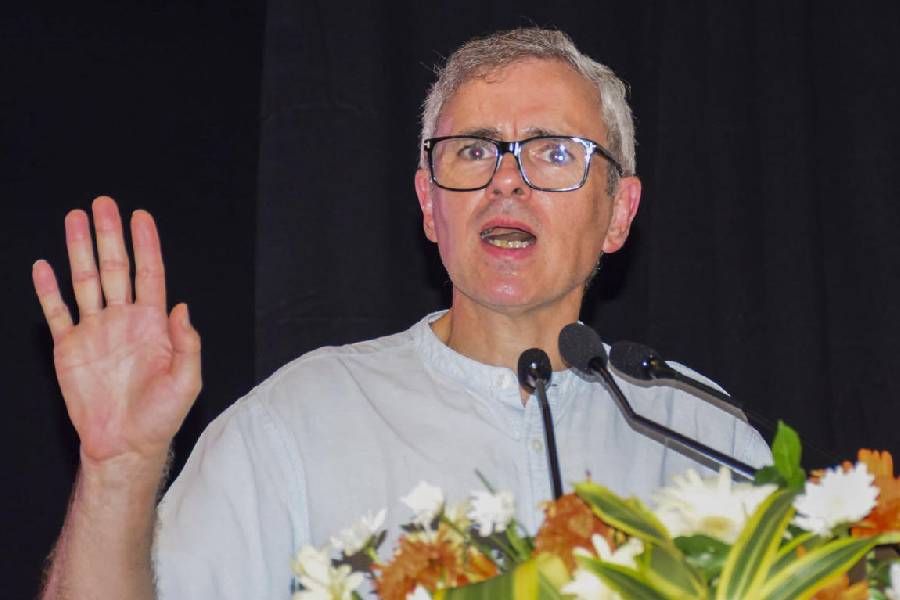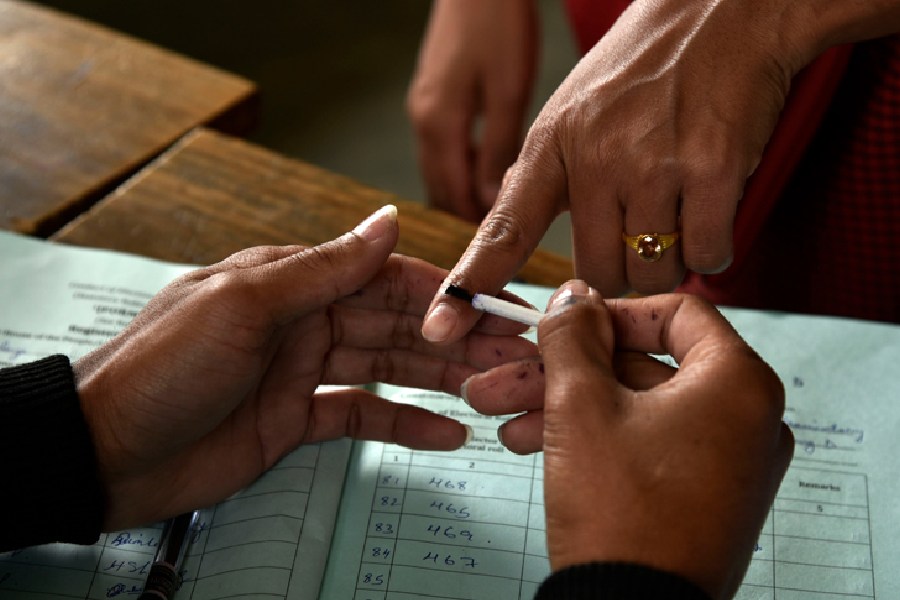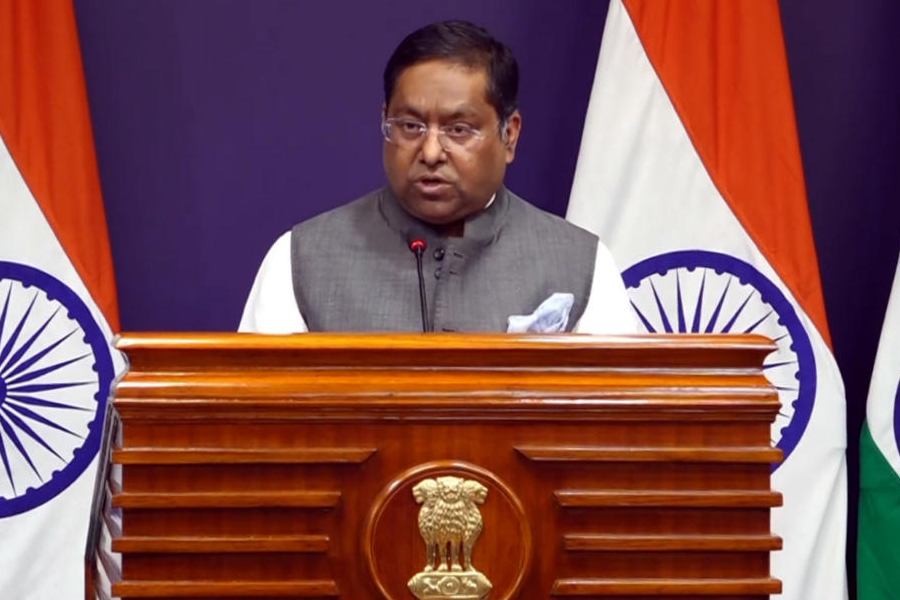 |
| Khagen Mahanta’s daughter Kingkini and son Angaraag (Papon) Mahanta at Rabindra Bhawan in Guwahati on Friday. Picture by UB Photos |
Guwahati, June 13: There is a ripple of songs that have come down the ages in Assam, gently lapping at the shores of the Brahmaputra through time, a gentle ebb and flow that speak of the inevitable, a whisper of the time when death descends, when life turns to memory marked by the tears of those left behind.
Back in Nagaon, where Khagen Mahanta was born, the Deh bisaror geet can have a quicker beat than what folks in the Upper Assam districts sing it to. But the verses are the same: of how fragile the body is, how futile the pursuit of happiness can be should one keep the end in mind. “Ki dekhi pagol holire mon, ki dekhi pagol holi… Barire agore jaati bah ejupi, jiyai thako mane koro kathi kaami, morile khosoni bari goes one… (What drives you so crazy, it asks the mind? The bamboo that grows in your garden, it says, you do things with it while you’re alive, once you’re gone it’s that they will tend the pyre with…)”.
Even the venerable Sri Srimanta Xankardeb who gave the Assamese a religion, a theatre form and a school of music, would, before he died, write “Pawe pori hori, karaho katori, prano rakhobi moro… (I fall at your feet my Lord, and pray you to keep my soul…” One song that Mahanta would be known for was “Ei mor xex gaan, jibon naator xex ragini kolyan khorman…”, a composition of Kolaguru Bishnu Prasad Rabha who, it is said, wrote it in the last days of his life. “This is my last song,” the songwriter-singer wrote, as he watched the last moments fleet past, “in this play of life my last ragini is the Kalyan, fast-paced…” Bhupen Hazarika would write “Moi jetiya ei jibonor maya eri gusi jaam, axa koru mor sitar kaxot tomar xohari paam… (When I go away leaving life’s maya, I hope you’re there by my pyre)…” Hazarika’s brother Jayanta would sing a poignant “Mrityu xaboti xomadhi stholit okole asohi roi (having hugged death I wait at the cremation ground all alone…)”. All put together it makes for a large collective ouvre of the Assamese songwriter and singer — happy with the seasons and yet not oblivious of the times that will bring the darkness and the tears.
Today as the flames from his pyre rose skyward, people decided to remember Khagen Mahanta by his “Jetiya magim moi xexor melani, jibonor xokoloti sai… Tetiya matile jano maat paba mor…(When I say my final goodbye, having seen all… Will I say a word when you speak to me…)” he had sung. Known for his all so happy Bihugeet and the devotional Borgeet that Xankardeb had bequeathed his people, Mahanta hadn’t forgotten to leave behind one that people would remember him by at his pyre.
The mood was sombre. As the hot summer afternoon decided to settle, his people bade him farewell with a 21 gun salute.
 |
| Khagen Mahanta’s wife Archana in Guwahati on Friday. Picture by UB Photos |
Mahanta’s son Angaraag (Papon) Mahanta had arrived at his Nigajipam home at 8.30am from Mumbai, with his wife and baby. After a tearful farewell by his wife Archana, soulmate and a partner in his duets, Mahanta’s body was taken to Xeuj Sangha, a club near his home. Thereon, the hearse wound its way to the office of All India Radio, Guwahati, where Mahanta had worked for nearly four decades, and then to Rabindra Bhawan where people had gathered to catch a glimpse of an icon. It was about 3.20pm that the cortege, escorted by hundreds of his fans, reached the funeral site near the Srimanta Sankaradeva Kalakshetra.
Among the many who thronged the grounds was a group of women who, squatting on the ground, sang the devotional naam ghoxa. They had waited for hours with a precious bunch of flowers for Mahanta and sang “Naam omoya, bhokot omoya, omoya Boikunthopuri…” The holy word is blessed, the true devotee too is blessed, and blessed is Vaikunth…it meant.
Mahanta arrived on the shoulders of boy scouts, young pallbearers of a singer they would carry with them through their lives. After the prayers and the gun salute and the reversal of arms by guards, came the Last Post.
As the evening grew close and the flames took what was theirs for the day this spring, Khagen Mahanta was missed — not just for the Borgeets he had sung, the Bihus he so loved and so lovingly gave a people, but perhaps, and most of all, because in all of it he had stayed, steadfast, like Bhupenda and Jayanta and so many who had sung that ouvre, a man true to the place he was born in.
In his songs will live pictures of a motherland and its people, their land and their lives and love safe within their words, their hopes alive in their melodies, a journey of surprises for every scout.
That perhaps is the takeaway from a funeral, where music and songs and hope win, once again, over the inevitable.










